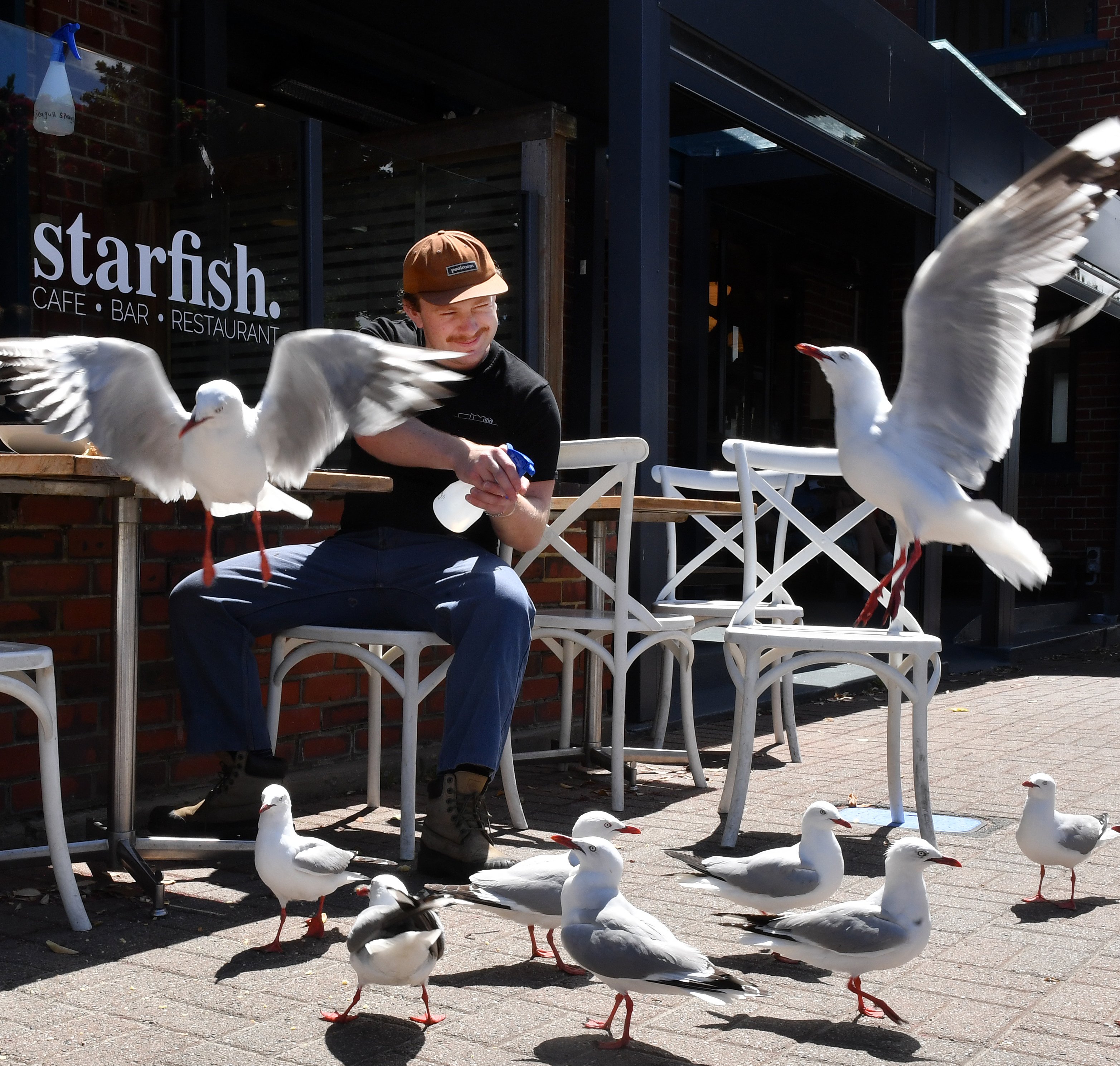Dunedin's gulls are becoming such a menace to diners that one restaurant has armed its patrons with spray bottles.
But amid claims from businesses that gulls in the city have become more aggressive in their quest for a meal, a wildlife veterinarian has urged the public to leave the birds alone.

Dunedin is home to the threatened red-billed (tarāpunga) and black-billed (tarāpuka) species of gulls, along with the unprotected black-backed gull.
Willowbank Dairy manager John Barton said the amount of gulls flocking to the dairy was "absolutely shocking" and they were acting more aggressively than before.
Every day, between 50 and 100 gulls invaded the street corner dairy in a flock.
"They chase people for their chips.
"They follow them all along the road, trying to get their chips off them."
Sometimes gulls would even enter the dairy and hop on the fridges to tap at the windows.
Starfish Cafe & Bar owner Mat Nicolson also said the gull behaviour had got worse, as more birds were rearing their heads over the new year.
"It’s pretty hectic ... The last couple of years they’ve been getting worse and worse."
When customers left their meals to go to the toilet or get a glass of water, gulls would "completely annihilate" what was left on the table, smashing plates and glasses.
"They’re getting a lot more aggressive than what they used to be."
They had recently begun offering customers spray bottles filled with water in an attempt to ward off the swooping birds, Mr Nicolson said.

Carey’s Bay Hotel owner Jo Kidston said the number of gull-related incidents had not increased, but was a problem that plagued the hotel every summer.
Dunedin Wildlife Hospital director and senior wildlife veterinarian Dr Lisa Argilla said it was aware of gull-related incidents but did not know if they were becoming more frequent.
Over the past five years, the hospital had treated 369 gulls and their erratic behaviour arose from a simple desire to survive.
"Their habitat has decreased due to humans moving further and further into their native habitat and reducing food supplies by overfishing the oceans.
"They’re very smart birds, super adaptable and have figured out that humans provide a good alternate food source when the ocean is depleted."
She urged the public to stop feeding gulls, as the more they interacted with humans the bolder they became.
She suggested cafes adopt a policy of clearing plates from outdoor seating areas as soon as possible and did not condone using water pistols to ward off gulls, which she said was illegal.
— Have you got a gull story? Email tim.scott@odt.co.nz , PIJF cadet reporter











